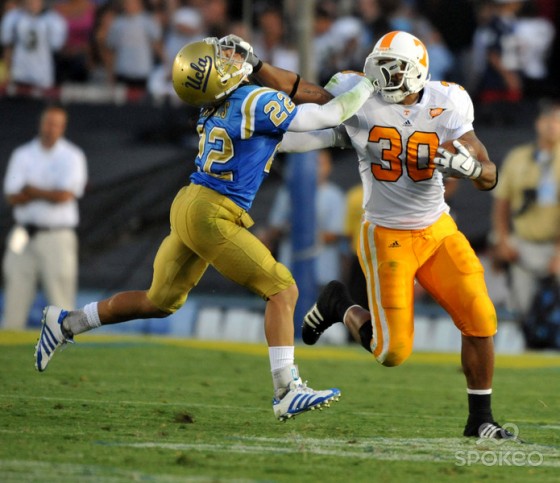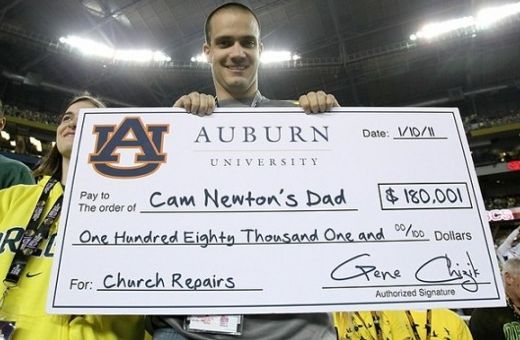
In the second part of this “Show me the money” series we will take a look at college life in the eyes of the college athlete and the question “should student athletes be paid?” from the player’s perspective.
“I don’t know if this is going to throw us into an NCAA investigation, but during my senior year, I was getting paid on the side”

said Houston Texans superstar and former University of Tennessee runningback, Arian Foster. Foster said that it was a tough pill to swallow to know that he would go out and play on Saturdays in front of a sold out crowd of 107,000 people and have a “good game” as he says “running for over a hundred yards or whatever, then staying to take pictures and sign autographs; Then walk back to my dorm and reality would set in. I’d open my fridge and there was no food.” Foster went on to say that kids don’t say anything because “if you say anything, you’re hurting your chances of getting to the next level. Its a beautifully designed evil scheme to keep kids quiet.” Former UCLA tailback, Johnathan Kennedy says a typical day for a UCLA football player is as follows:
5:30am – wake up
6:00-9:00am – work out
10:00am-1:00pm – class
2:00-3:15pm – meetings
4:00-6:00pm – practice
7:00-9:00pm – tutoring
10:00-11:00pm – homework
The point that Kennedy and Foster were trying to make is that Universities and the NCAA shouldn’t profit billions annually, while the athletes who put in the manual labor are called amateurs when they should be treated like employees.
So how many billions is the NCAA making a year? 12.1 billion to be exact, and that number is only growing.The money they are making is being produced by ticket sales, donations, television contracts, sponsorships and royalties from licensing and merchandise, and it’s all tax free. That’s $12.1 billion tax free and the players get sanctioned for trying to capitalize on their own talents.
So Why is it wrong for college athletes to be paid? Why is it taboo? To quote Michael Rosenthal from SportsIllustrated,

“Suppose you had a really talented math student without a lot of money but he had excellent math skills and he wanted to get paid for his math skills and then turn around and give that money to his dad for his church, there would be beautiful stories written about what a great kid this is; but when that was what Cam Newton supposedly did, and the skill was football, it was big scandal.”
I’ll leave you with this. I don’t see the current model of how college athletes are treated with respect to amateurism, lasting much longer. Hidering people from benefiting from potential endorsements is wrong. Capitalizing billions from the hard work of young men and women who spend most of their waking lives working on their craft, without allowing them to benefit monetarily, simply because you don’t want to lose the money it would take to pay them, is wrong.

Not only are they spending their waking lives working on this, the performance on the field is also limiting their future earning potential. Look at Fournette at LSU — everyone agrees that he could easily go in the first round of the 2016 NFL draft, but can’t because he’s only a sophomore. So now he has to play another year and his body has to absorb what, another 280 carries? That’s potentially a year or two off his NFL shelf life.
It’s not just the NCAA…
I completely agree Tony. I guarantee we will hear of people questioning whether he should even come back to LSU next year or just take the year off all together and prepare for the draft. The way they did with clowney. And in regards to it not just being the ncaa, I agree with that too. Lol
Last week I asked from the fan perspective ‘is it worth it to play players?’ This week I wrote from the player’s perspective of why they should be paid. Next week I’m going to make the case for the ncaa.